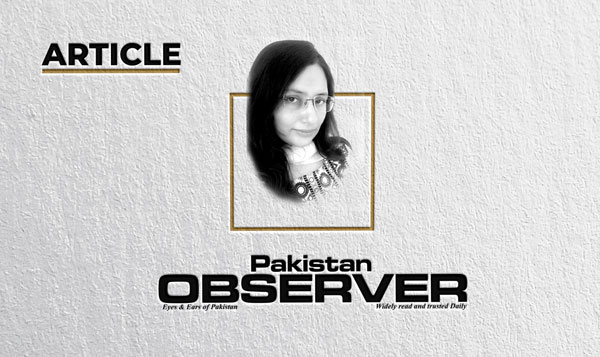Higher education: A journey or destination
ALMOST 500 years ago, Thomas Moore (1478–1535), in his famous work, “Utopia”, launched a debate reflecting him confused between two conditions of either to pursue the ideal/utopia or taking social utility in place of that ideal.
However, later on, Moore himself opted to work for Henry VIII and, by that, he acquired the most honorable rank of Lord Chancellor.
He abandoned it later on in order to pursue his utopian ideal. While comparing Moore’s confusion with that of current state of higher education in Pakistan, it is hoped that in 21st Century will keep on pursuing the Utopia of futuristic vision and, like Moore, it will not die for this cause.
Of course, it is not an easy aim and policy makers, leaders and academicians will need to strive hard along the way.
With inculcation of appropriate values, updated knowledge, pragmatic skills, sufficient competences and advanced professional development trainings we can surely move towards a collective and progressive future.
Before moving forward, I would like to think that: What is higher education and why do we want it?
Is there any opposite of higher something like lower/inferior? Does higher education is linked to power or social position? Or does higher education provide wisdom or knowledge?
Is higher education mandatory to achieve better job options, fame, money, and spouse? Or does it have for some other significant reasons? Most importantly, is it a journey or a destination?
The above-mentioned questions should be asked from our leaders, teachers, students, community and from ourselves. We should make it clear that what should be the desired impact of higher education?
What is that specific change that we want to achieve? Sir Ken Robinson and Kate Robinson, in their article “What is Education For?
”, define education as, “ education should expand our consciousness, capabilities, sensitivities, and cultural understanding. It should enlarge our world view”.
The Universal Declaration of Human Rights states, “All human beings are born free and equal in dignity and rights,” and that “Education shall be directed to the full development of the human personality and to the strengthening of respect for human rights and fundamental freedoms.
” But unfortunately, many issues in the current educational system result from losing track of core principles.
Therefore, to understand, formulate, and implement such an ideal estate of education with pursuit of collective progress is Utopia in education.
Based on the defined principles, it can be said that the goal of education is the mastery of updated knowledge, information, advanced use of technology in society.
Moreover, the students, being integral part of learning, should be engaged in learning on their own pace and flexible methods.
As Alvin Toffler a Fortune Magazine writer and futurist eloquently said, “The illiterate of the 21st century will not be those who cannot read and write, but those who cannot learn, unlearn and relearn.
” Therefore, goal of education should be to provide complex yet flexible learning environments in order to incorporate genuine learning, regular assessment and personal grooming.
In short, 21st century skills include creativity, critical thinking, communication, collaboration, information literacy, technology literacy, media literacy, leadership, flexibility, productivity and social skills.
Creativity will lead to innovation and collaboration will make students work together to solve a problem.
Similarly, effective communication is a soft skill, and without it, education will lack a crucial skill to ensure progress for the greater good.
Likewise, 21st century literacy also includes media literacy, IMT skills, information literacy, and technology literacy for digital comprehension.
Moreover, some pivotal life skills, such as, flexibility regarding plans, inculcating leadership qualities for the accomplishment of a goal, and taking initiative to decide strategies and plans, are also important.
Further, productivity and social skills will teach how to maintain efficiency and networking with others for mutual benefit.
In fact, in this globalized age, educators also need to inculcate learning education about sensitive issues like sustainable environment, religious tolerance, women’s respect and critical thinking.
The demand for 21st Century education is to enact and adapt to change, therefore, it’s also important to plan and hire competent teachers who have to achieve maximum possible learning outcomes.
While these educational strategies can be taught at any level, it has been found that the implementation is most effective at the level of higher education.
So how seriously we are moving towards achieving utopian destination of 21st century education?
—The writer is contributing columnist, based in Jhang.










